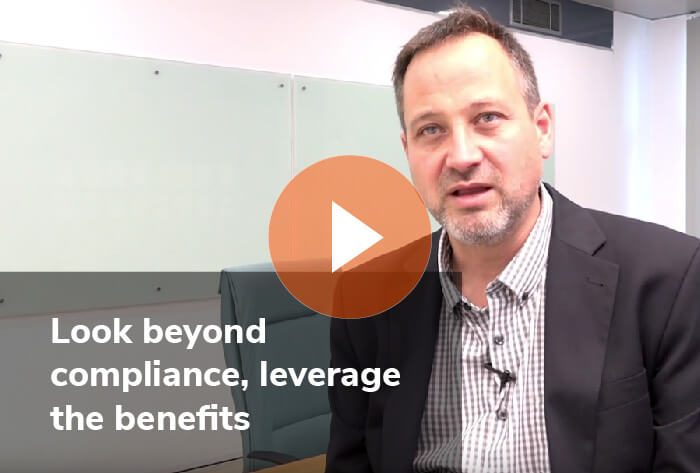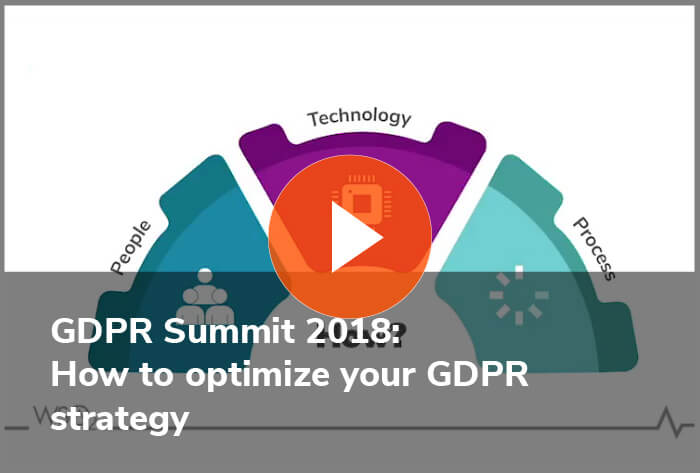GDPR
Protection Regulation
-
Assess the Business Impact
-
Be prepared
-
Accelerate Business Growth
What is GDPR Compliance?
General Data Protection Regulation, or GDPR is a law centered on user consent. Countries focus on GDPR compliance given the importance of user privacy on personal data and to avoid personal data breaches. Brazil’s Lei Geral de Proteção de Dados (LGPD) and the California Consumer Privacy Act (CCPA) are such examples. It's the core of Europe's digital privacy legislation on data privacy by the European union.
Any organization that doesn't follow new norms on GDPR compliance will end up facing severe fines. Therefore GDPR Compliance is not optional, but mandatory for all companies.
Under the EU GDPR, organizations are required to appoint a Data Protection Officer (DPO) to ensure data protection compliance of its organization.
Data Protection Principles on GDPR Compliance
GDPR Compliance ensures that your product adheres to major data protection principles, including various security measures. These are outlined below.
Lawfulness and Transparency
To ensure GDPR compliance, an organization's data collection practice needs to be transparent and should not hide anything from the data subjects. The Privacy Policy page should state the types of personal information that is collected for data processing and the reasons for collecting them.
Purpose Limitation
Organizations should only collect personal information for a specific purpose, they should clearly state the purpose and only collect personal information for as long as necessary to complete the specified purpose. The GDPR compliance has data controllers accountable for the collection and the use of personal data. Disposal of personal data too will be managed through a data controller.
Data Minimisation
Data Minimisation ensures that an organization must only process data needed to achieve its data processing purposes. This provides 2 major benefits. First, during data breaches, the unauthorized party who caused the data breach will only have access to a limited data set, helping to increase information security and data privacy. Second, it helps to keep data accurate and up to date.
Storage Limitation
Data Storage Limitation is another important data protection principle, which ensures organizations remove personal data when it’s no longer necessary.
Integrity and Confidentiality
This GDPR compliance principle ensures security. Organizations should encrypt user data after processing personal data or pseudonymised data. This is considered a key organizational protection measure on data protection and information security.
Right to Access Information
Subject Access Requests (SAR) is the right of a user to obtain personal data records. Data protection laws such as GDPR, empower individuals to access their personal information.
Accountability
Accountability ensures that organizations have the required documentation in place to prove they are GDPR compliant and provide data protection. E.g. data protection impact assessments, privacy notices, etc.
Impact of GDPR Compliance and Other Privacy Laws
Some compliance challenges include the knowledge gap in implementation and complex nature of the regulation. Some businesses have had to terminate operations simply due to the nature of their business (i.e. data collection). The hefty fines (€20,000,000 or 4% of total annual global turnover) was of major concern and the compliance speed varied from industry to industry (finance and banking heading the way) and geographically.
Dealing with data isn’t easy. But ensuring your customer’s privacy on sensitive personal data and personal data protection ensures benefits in the long run.
Look Beyond Compliance, Leverage the Benefits
GDPR and similar data privacy laws on data protection such as CCPA or LGDP may appear challenging, but there’s a potential opportunity for a new level of business growth because it prioritizes user consent. Those who adapt early, can leverage the following benefits.
Benefits from data privacy laws to people living in the specified region
- Personal data belongs solely to the individuals
- Well-defined boundaries for privacy
- Ability to engage with businesses in a trustworthy and transparent manner
Benefits from data privacy laws to your business
- Certainty about the integrity of the data you process (i.e. no false leads)
- Build brand loyalty with customers that now trust your company even more
- Target the right customers with the right material to enhance your customer experience
Learn About Other Data Protection Laws (Privacy Laws) by Data Protection Authorities
CCPA
This deals with residents in California, USA. Businesses that engage with residents in California must comply with the CCPA from January 1, 2020.
Following the lead of CCPA in California, other states in the US such as Virginia and Colorado have introduced their own acts that take effect on Jan 1, 2023.
Watch our webinar to learn more

Why WSO2?
You need to select the right technology that allows you to accelerate compliance and also take advantage of regulations to rapidly grow your business. WSO2’s cloud native, open-source platform facilitates the agility and innovation required to keep pace with rapidly evolving markets and regulations. What’s more, all WSO2 products are fully GDPR compliant.

How is WSO2 Compliant with General Data Protection Regulation?
The complete WSO2 Integration Agile Platform is General Data Protection Regulation (GDPR) compliant. And each component of the platform can be used to build GDPR solutions for your enterprise WSO2 Identity and Access Management (IAM) along with secure WSO2 API Management help to address the new requirements of General Data Protection Regulation compliance, such as customer data privacy from personal data breach, a self-care portal to enable customer rights defined in the GDPR and full-scale consent lifecycle management. The WSO2 IAM solution also offers the ability to adhere to the right to be forgotten with the WSO2 Privacy Toolkit.
Consent Management
The processing organization should be able to demonstrate proof of consent and allow individuals to review previously given consent and withdraw it if necessary.
Consent Management with WSO2 Identity Server
- A comprehensive RESTful API which supports Kantara consent management specification. Using this API, you can enable consent management for any application while avoiding vendor lock.
- Self care portal to manage user’s consent, where users can go back to their consent declarations at any time for review, validation, revocation, or other changes.
- User consent for
- Self sign up to provide consent when a user self registers
- Single sign-on (SSO)/federation to provide users with choice and control over sharing their personal data
- OpenID Connect which integrates user consent management into OIDC authorization code and implicit flow
- Consent purposes management in the administrative portal to provide an interactive UI to manage consent purposes/PII categories
- Personal information export capability so end users can retrieve personal information stored in WSO2 Identity Server.
Privacy by Design and Privacy by Default
General Data Protection Regulation states the processing organization should adopt internal policies and implement measures that meet, in particular, the principles of data protection by design and data protection by default. A data protection impact assessment will help you achieve this by ensuring that all personal data collection, processing, storage and destruction measures are designed to secure privacy.

The Right to be Forgotten
The “right to be forgotten” is a user right outlined in GDPR, which gives individuals the right to request the organization to erase their personal data collected with immediate effect. Erasing all records of this individual’s activity may impact your business processes, so the best way to comply is to only remove relevant data that can identify the individual.
The Privacy Toolkit
WSO2 provides a Privacy Toolkit, which helps with easily anonymizing personal data records related to a deleted user to ensure compliance with the right to be forgotten rule. Learn more here.
Resources
- Accelerating Your GDPR Compliance with the WSO2 platform
- The Right Steps to Becoming GDPR Compliant
- GDPR Compliance with WSO2 Identity Server
- GDPR and API Security
- The Role of GDPR in Customer Identity and Access Management
- GDPR Compliance by Design
- The Impact of GDPR on User Experience
- Looking for a GDPR compliant IAM product?
- Cross border data transfers under GDPR

